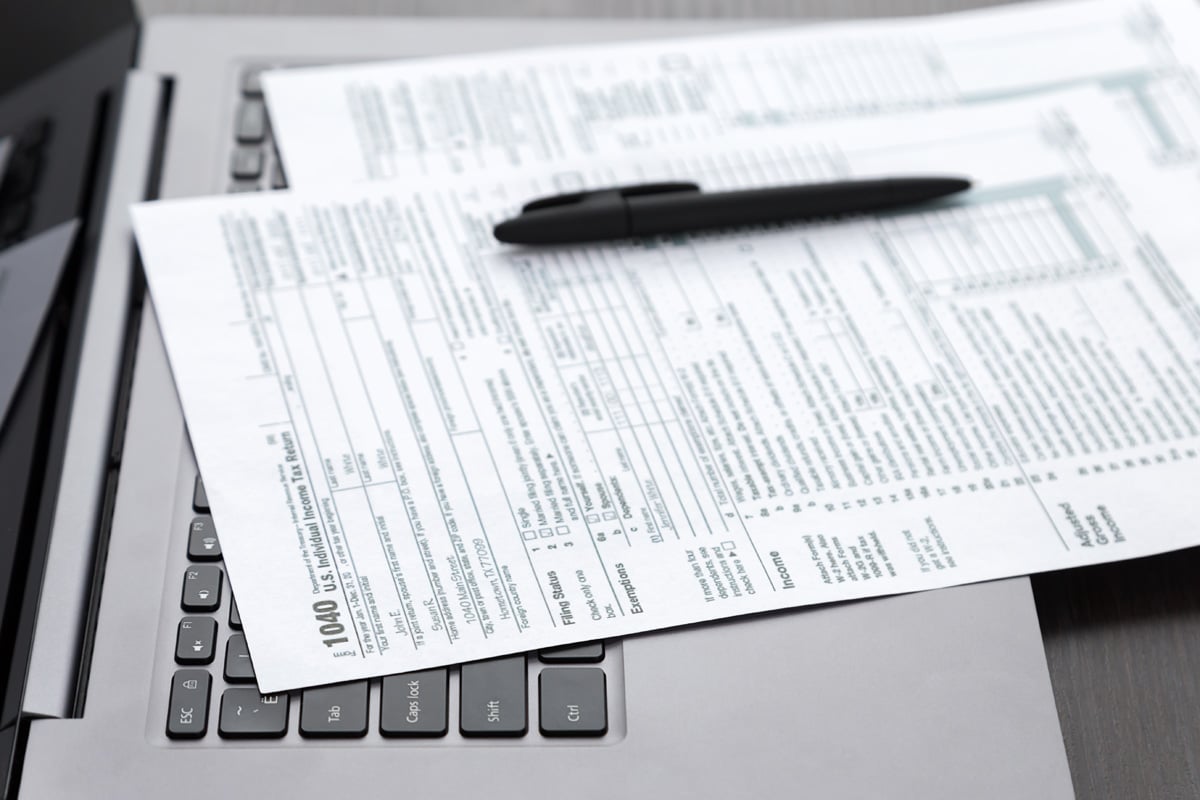In this uncertain and rapidly changing situation, it can be hard to find the information you are looking for. At Zagmout & Company CPAs, we decided to compile an easy to follow guide that includes direct links to state, local and federal, as well as small business loan information, banks and corporate sponsors providing assistance. We hope this guide helps you navigate the current options available to support you, your business and employees. Please reach out to us via email with any questions. info@ZagmoutCPAs.com. We are here for you help! Please Stay Safe!
I. Federal
For Individuals and self-employed:
- One–Time Cash Assistance: Most individuals earning less than $75,000 can expect a one-time cash payment of $1,200. Married couples would each receive a check and families would get $500 per child. That means a family of four earning less than $150,000 can expect $3,400.
- Pandemic Unemployment Assistance: Provides unemployment coverage through the end of the year to freelancers and independent contractors. Provides an additional $600 per week for 4 months in addition to regular state benefits.
- I am self-employed. Do I qualify under the new federal unemployment program?
Under regular unemployment rules, the incomes of self-employed workers, freelancers, and independent contractors are not subject to unemployment taxes and so typically these individuals are not eligible for unemployment benefits. The stimulus package creates a new, temporary program to help people who lose this type of work as a direct result of the current public health emergency. Illinois Department of Employment Security (IDES) will provide information about how to apply for this benefit as soon as it is finalized. Check updates regarding when to apply
For Small businesses, sole proprietors, independent contractors, and self-employed
the U.S. Small Business Administration (SBA) began authorizing loan applications through their Paycheck Protection Program. This program is designed to provide a direct incentive for small businesses to keep employees on their payroll. The 2-year loan has an interest rate of 1% and can be completely forgiven for compensation expenses, rent or mortgage interest, and utility costs incurred for eight weeks after origination. Click here to learn more. Contact your local banker to discuss the lender guide to ensure they are aware of program requirements. While it is our understanding that virtually all banks and credit unions will be able to process program applications, you should verify that your bank intends to support the program.
Small Business Administration Programs:
- Paycheck Protection Program
The Paycheck Protection Program is a loan designed to provide a direct incentive for small businesses, sole proprietors, independent contractors, and self-employed persons to keep their workers on the payroll. SBA will forgive loans if all employees are kept on the payroll for eight weeks and the money is used for payroll, rent, mortgage interest, or utilities. Learn more & Apply
- EIDL Loan Advance (up to $10k)
Small business owners are eligible to apply for an Economic Injury Disaster Loan advance of up to $10,000. This advance will provide economic relief to businesses that are currently experiencing a temporary loss of revenue. Funds will be made available following a successful application. This loan advance will not have to be repaid. Learn more & Apply
- SBA Express Bridge Loans
If a small business has an urgent need for cash while waiting for decision and disbursement on an Economic Injury Disaster Loan, they may qualify for an SBA Express Disaster Bridge Loan. This program Enables small businesses who currently have a business relationship with an SBA Express Lender to access up to $25,000 quickly. Learn more & Apply Terms
- Up to $25,000
- Fast turnaround
- Will be repaid in full or in part by proceeds from the EIDL loan (See point #2 above)
- SBA Debt Relief
As part of SBA’s debt relief efforts,
- The SBA will automatically pay the principal, interest, and fees of current 7(a), 504, and microloans for a period of six months.
- The SBA will also automatically pay the principal, interest, and fees of new 7(a), 504, and microloans issued prior to September 27, 2020. Learn more & Apply
II. State of Illinois
The state is making loans of up to $50,000 available through its Illinois Small Business Emergency Loan Fund, but that program is available only to businesses outside Chicago. Its terms resemble those of the Chicago program for the state’s other small-business owners. Businesses located outside of the City of Chicago with fewer than 50 workers and less than $3 million in revenue in 2019 will be eligible to apply. Successful applicants will owe nothing for six months and will then begin making fixed payments at a below market interest rate for the remainder of a five-year loan term. Learn more about eligibility and how to apply here.
Downstate Small Business Stabilization Program
To support small businesses in downstate and rural counties across Illinois, DCEO is repurposing $20 million in CDBG funds to stand up the Downstate Small Business Stabilization Program. This Fund will offer small businesses of up to 50 employees the opportunity to partner with their local governments to obtain grants of up to $25,000 in working capital. These grants will be offered on a rolling basis. Communities can learn more about the Notice of Funding Opportunity (NOFO) and eligibility requirements here.
III. City of Chicago
The city of Chicago has put $100 million toward the Small Business Resiliency Fund, making five-year loans of up to $50,000 for small businesses with a relatively low annual interest rate of 1 percent for the first 18 months and 5.75 percent thereafter, with minimal payments in the first six months. The loan application for the Chicago Small Business Resiliency Fund is now live. To apply, please visit us here to start your application. BUSINESS REQUIREMENTS To be eligible for a Resiliency Fund loan, a small business must meet the requirements detailed below. Please note that the application must be completed and submitted by the owner of the business with the largest ownership interest. (Note: if two or more owners have equal ownership of the business, one of the owners with equal ownership will be required to fill out the online application.)
- Employ fewer than 50 employees, 50% of whom are Chicago residents
- Have realized gross annual revenues of less than $3 million pre-COVID-19
- Have suffered a revenue decrease of at least 25% due to COVID-19
- Be located in the City of Chicago and have been in business for at least 1 year at of the date of application
Applicants and businesses will also be subject to a City of Chicago debt check, with the opportunity to get on a payment plan and move forward with the loan in the event the applicant or business has existing City debt.
IV. Lender and Corporate Small Business Assistance Programs
Many banks are providing relief in forms of deferment and forbearance to individuals and businesses. You can also search for your bank on the American Bankers Association’s ongoing A-Z list of coronavirus response programs.
Facebook Small Business Grants Program
Facebook has committed to offering up to 30,000 small businesses $100 million in cash grants and Facebook advertising credits. The grants will be provided to businesses in more than 30 countries. Information is limited, but sign up to get more details from the company when they’re available.
V. Federal Income Tax Filing and Payment Deadline Extension
The federal tax return filing deadline is now July 15, 2020. For tax payments of up to $10 million, the IRS has also extended the deadline for both individuals and businesses to July 15, 2020. Estimated tax payments for 2020 originally due on April 15 will now be due on July 15.
State tax returns
This relief only applies to federal income returns and tax (including tax on self-employment income) payments otherwise due April 15, 2020. Check with your state tax agency to find out if you have more time to file or more time to pay. More information is available at https://www.taxadmin.org/state-tax-agencies. What if I did not have to file a tax return in the past. How can I receive money from the IRS? To help millions of people, the Treasury Department and the Internal Revenue Service launched a new web tool allowing quick registration for Economic Impact Payments for those who don’t normally file a tax return. Click here to see tax services we provide
Paper Return Processing Delayed
The IRS also announced that they are not able to process individual paper tax returns since processing centers are closed. All taxpayers are urged to e-file their returns. Ask us how we can help.
VI. COVID-19 Scams: What You Need to Know
A time of crisis can bring out the best of humanity. Unfortunately, it can also bring out the worst—scammers and con-artists. While most of the world is pulling together to protect our vulnerable citizens, swindlers are finding opportunities amid the disruption to exploit people through a variety of deceitful tactics. The Federal Trade Commission (FTC) reports “scammers are taking advantage of fears surrounding the Coronavirus.” Combining fear with false claims (that often appear to be reputable) these scammers are using the fog of the global health crisis to perpetrate cybercrimes that may ultimately separate people from their money. At a time when people need to keep themselves, their families, and their finances safe—what can we do to protect our digital health against coronavirus?
- Be especially wary of phishing emails related to “cures”
While sheltering in place helps to prevent the spread of the virus, it also makes us particularly reliant on the internet and digital forms of communication. Knowing this, a variety of internet-based scams have deployed sophisticated and far-reaching tactics via email and through fake websites, with Infosecurity Magazine reporting a 667% increase in phishing scams in less than a month. Be especially wary of any emails claiming to sell “cures” for the virus or emails appearing like shipment notifications.
- Be very suspicious of any uninitiated contact related to your federal check
Now that there is a federal economic relief plan in place to provide qualifying citizens with government funds, consumers are fielding contact from scammers with empty promises of being able to secure their check faster. As displayed on the IRS.gov website, federal checks will be processed based on your previous tax filings, so no additional action is required. Do not give anyone your bank account information and do not send anyone money through PayPal or other online financial systems who are promising you faster access to your federal funds.
- When in doubt, take steps to determine reputability
Many people are dealing with unemployment claims right now, which is only handled through each individual state. Be wary of any person contacting you about the status of your unemployment claim and when in doubt, find a reputable phone number and inquire before offering any personal information like your social security number or home address. Similarly, do not click links of websites claiming to help you secure your unemployment insurance money. Instead, find a phone number and call them. Becoming a victim of identity theft and falling prey to a coronavirus scam is the last thing anyone wants to be worried about during this unprecedented time. By remaining especially vigilant to what you’re clicking on and who you are giving your information to, you can help make sure scammers don’t capitalize on your financial health while the world is focused on protecting its physical health.
VII. Useful Links
If you have any questions regarding this article, or if you need further assistance regarding your unique financial or tax situation, send us an email at info@zagmoutcpas.com, or call us at (312) 239-3716.
To learn more, visit Zagmout & Company CPAs at www.zagmoutcpas.com.


